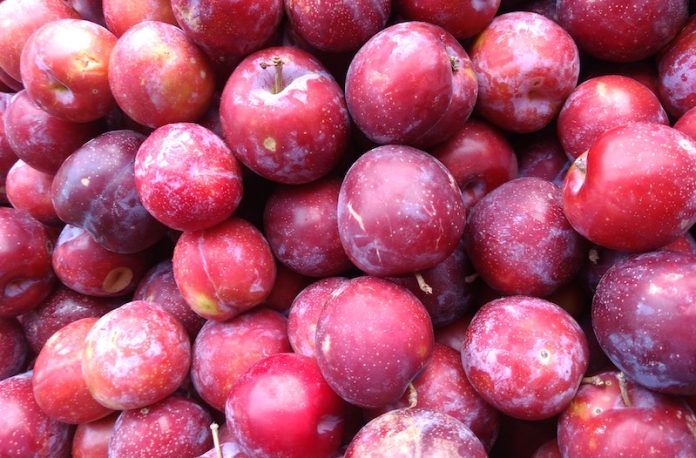
More than half of the US population aged 20 and older, approximately 122 million Americans, suffer from high blood pressure, or hypertension.
This condition is a major cause of cardiovascular diseases, including heart attack, heart failure, and stroke. Despite advancements in treatment, the risk of death remains high for patients with hypertension, even those on medication.
Faced with the lack of new, effective drugs for hypertension and associated cardiovascular issues, researchers at the Lewis Katz School of Medicine at Temple University have discovered a potentially promising alternative: juice concentrate from the Japanese plum (Prunus mume).
Widely consumed in Asia and recognized as a health food in Japan, this simple supplement may help to reduce the risk of cardiovascular disease. The research was published online in the journal Hypertension Research.
The Japanese plum, also known as “Ume,” traditionally requires processing into juices or wine to eliminate toxins present in the raw fruit.
The infused juice concentrate, called bainiku-ekisu, has been used as a health supplement in Japan since at least the 18th century.
Prior research has suggested that bainiku-ekisu may have heart disease-preventing properties, and laboratory studies have shown it to counteract growth-promoting signals induced by the hormone angiotensin II, which is central to hypertension development.
To further investigate bainiku-ekisu’s potential anti-hypertensive properties, the research team used a mouse model where hypertension was induced by angiotensin II.
The mice were given either plain water or water containing bainiku-ekisu. The results were significantly different between the two groups: mice given bainiku-ekisu did not develop hypertension and had minimal hypertrophy (enlargement) of the aorta.
The juice concentrate also attenuated the infiltration of immune cells, reducing inflammation associated with hypertension.
The researchers believe bainiku-ekisu prevents hypertension by blocking the switch to glycolysis, a process of glucose breakdown that occurs in cells under oxygen-poor conditions and is a key feature of hypertension-induced hypertrophy.
High levels of oxidative stress resulting from glycolysis lead to inflammation, increased vascular stiffness, and ultimately more severe cardiovascular disease.
Future research will focus on identifying the specific compounds in bainiku-ekisu responsible for its protective effects.
According to the team, the potency of the juice concentrate could be due to the additive or synergistic effects of two or three compounds working together. These benefits might be lost in a pharmaceutical preparation.
If you care about high blood pressure, please read studies about nutrients that could protect against high blood pressure, and common high blood pressure drugs may actually raise blood pressure.
For more information about high blood pressure, please see recent studies about teas that could help reduce high blood pressure, and results showing cannabis could reduce blood pressure in older people.
The study was published in Hypertension Research.
Follow us on Twitter for more articles about this topic.
Copyright © 2023 Knowridge Science Report. All rights reserved.



